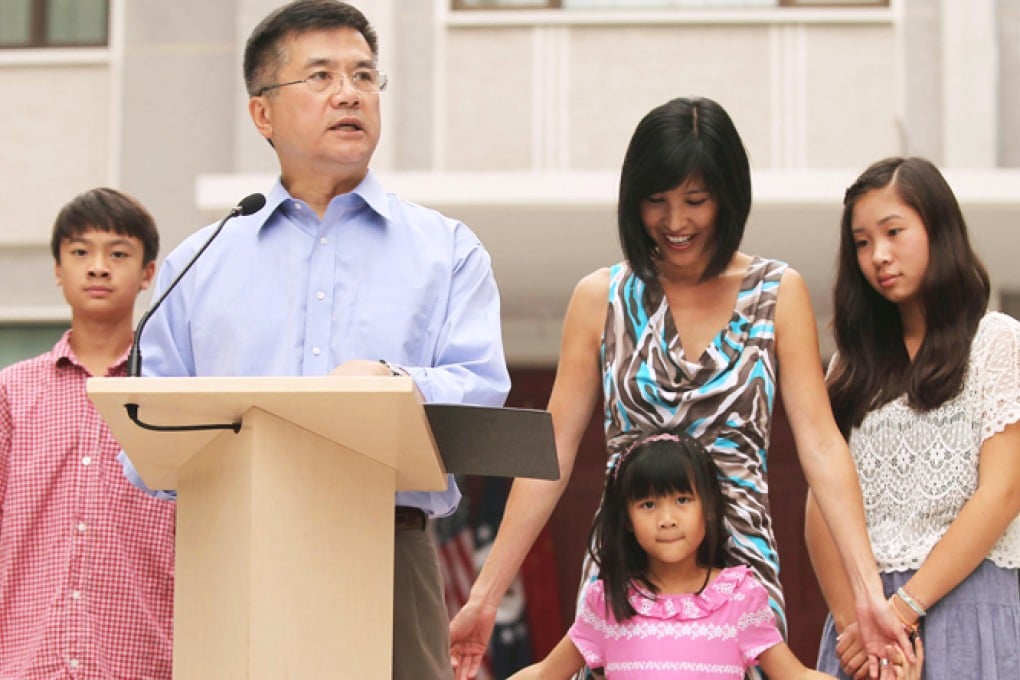Gary Locke, the 'humble' envoy who was tested to the limit
Gary Locke, the first Chinese-American to serve as US ambassador to Beijing, has had an eventful 28-month tenure, marked by a diplomatic tussle over blind activist Chen Guangcheng and a defection drama that triggered the downfall of Bo Xilai .

Gary Locke, the first Chinese-American to serve as US ambassador to Beijing, has had an eventful 28-month tenure, marked by a diplomatic tussle over blind activist Chen Guangcheng and a defection drama that triggered the downfall of Bo Xilai .
American ambassadors usually serve about three years in a foreign post. Locke, a third-generation Chinese-American who did not speak English until he was five, took over from Jon Huntsman in August 2011. Huntsman resigned to explore a presidential bid.
A photograph of Locke sporting a backpack and ordering coffee with his then six-year-old daughter went viral on the internet and charmed Chinese audiences even before he came to China. Web users often juxtaposed his calm, humble demeanour with the often flashy and lavish photos of local officials.
In reality, Locke's ambassadorship was often embroiled in political theatre.
In November 2011, Locke visited Chongqing , where he met then municipal party chief Bo Xilai. About three months later, Bo's right-hand man, Wang Lijun , fled to the US consulate in Chengdu , where he recounted a murder story implicating the ambitious politician and offered evidence of corruption in exchange for political asylum.
Wang was tried last year and jailed for 15 years; Bo was sentenced to life imprisonment in September.
That was the first big test of Sino-US relations during Locke's tenure.